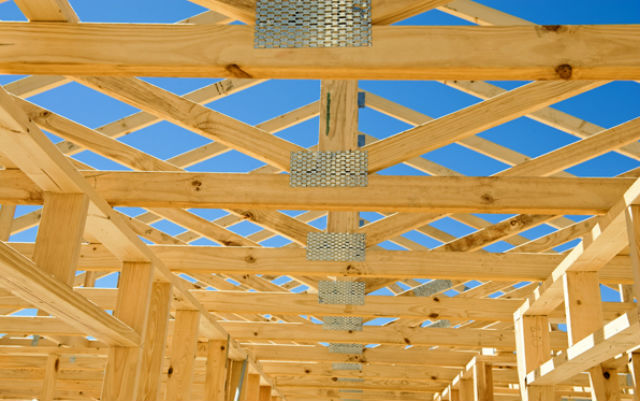
Last year was a historic one for billion-dollar weather and climate disasters in the U.S., with 28 separate events costing at least $1 billion each. In the 1980s, the average time between billion-dollar disasters was 82 days. In 2023, it was just 12 days.
These catastrophic events leave millions of Americans struggling to recover and rebuild their lives, and when repairs or renovations are needed, the process can often feel overwhelming. Unfortunately, disreputable contractors often swoop in after these catastrophic events, preying on desperation with high-pressure tactics and promises of quick fixes, which can leave homeowners financially and emotionally drained.
Contractor fraud is a pervasive issue that not only undermines trust within communities but also inflicts significant financial and emotional harm on families across America. With the promise of renovations, repairs, or construction projects, fraudulent contractors exploit the vulnerabilities of unsuspecting homeowners, leaving behind a trail of broken promises, shoddy workmanship, and depleted savings.
This type of fraud not only affects individual homeowners, but also impacts insurance premiums throughout the industry and costs Americans billions of dollars every year.
To combat this growing problem, the National Insurance Crime Bureau partners with government agencies and its member insurance carriers to educate homeowners and businesses on how to avoid becoming a victim of deceptive contractors after a natural disaster as part of its annual Contractor Fraud Awareness Week, which just ended.
Contractor fraud is a crime that thrives in the shadows. By arming ourselves with knowledge, vigilance, and a healthy dose of skepticism, we can protect our homes and our hard-earned money. Luckily, there are important steps every homeowner can take to protect themselves from contractor fraud:
- Be Wary of High-Pressure Sales: Legitimate contractors understand the value of informed decisions. A contractor demanding an immediate decision or offering a “limited-time” discount is likely using a scare tactic.
- Do Your Research: Never hire the first contractor you meet. Seek referrals from friends, family, and neighbors. Verify licenses and insurance with the state licensing board. Tools like the Better Business Bureau can reveal a contractor’s complaint history.
- Seek Multiple Bids: Don’t settle for a single estimate. Obtain bids from at least three qualified contractors with a detailed breakdown of costs and materials.
- Get a Signed Contract: A verbal agreement is worthless in case disputes arise. Every detail — scope of work, materials list, payment schedule, completion timeline, and warranty information — should be outlined in a signed contract.
- Beware of Upfront Payments: Being required to make a significant upfront payment by a contractor is a red flag. Consider a reasonable down payment, with progress payments tied to completed milestones. Never pay the full amount until the project is finished to your satisfaction.
- Watch for Red Flags and Trust Gut Feelings: Unethical contractors often exhibit telltale signs. Be wary of contractors who lack a permanent address, offer unusually low bids, or pressure you to use their financing. Finally, trust your gut. If something feels off, it probably is.
- Contact Your Insurance Carrier: Contact your insurance company before hiring a contractor, especially after a disaster. They may have a list of pre-approved vendors or offer guidance. Furthermore, understand your insurance coverage regarding repairs and replacements.
- Educate Yourself on Projects: Educate yourself about the specific project you’re undertaking. This basic understanding allows you to ask informed questions and scrutinize proposed solutions. Resources like local building departments offer valuable information on permits and regulations.
- When in Doubt, Walk Away: Don’t be pressured into signing a contract you’re uncomfortable with. A reputable contractor will respect your right to due diligence. Don’t hesitate to walk away and seek a more trustworthy professional.
- Report Fraud: If you suspect contractor fraud, report it to your state licensing board, the BBB, and law enforcement. You can also contact NICB to report fraud by calling toll-free 800.835.642).
Homeownership is often viewed as a cornerstone of the American Dream. By taking steps to deter contractor fraud, we can ensure that it does not become the American nightmare.
David J. Glawe is the president and CEO of the National Insurance Crime Bureau, a not-for-profit organization dedicated to combatting and preventing insurance crime. He is a former U.S. Under Secretary of Homeland Security for Intelligence and Analysis.

